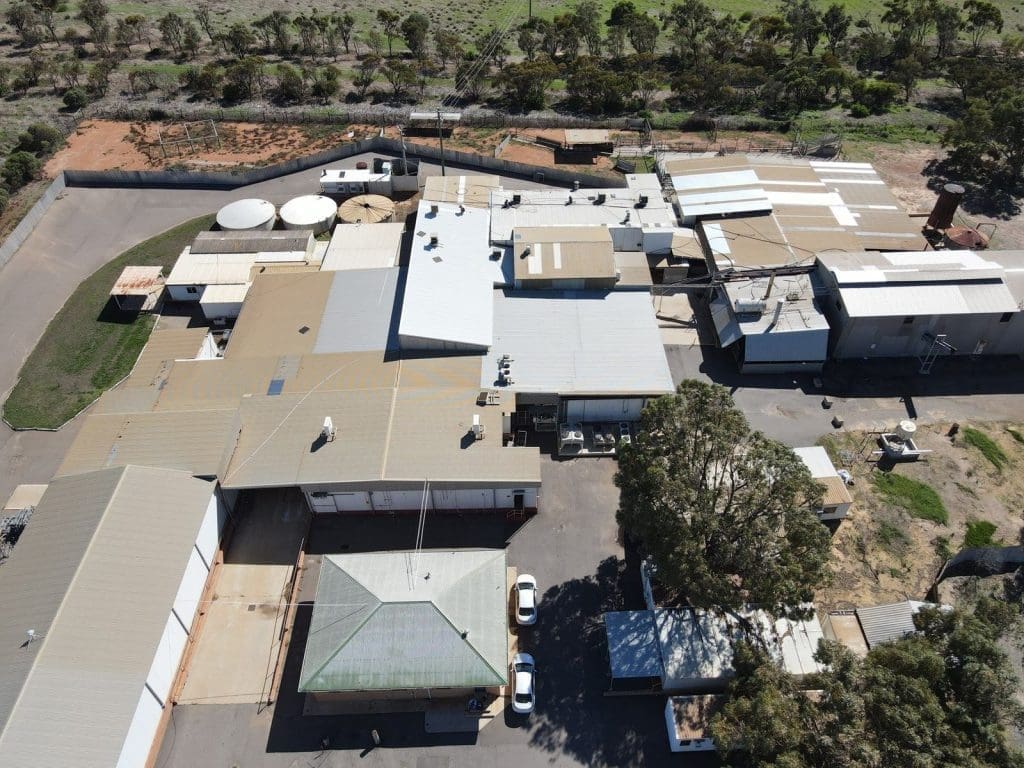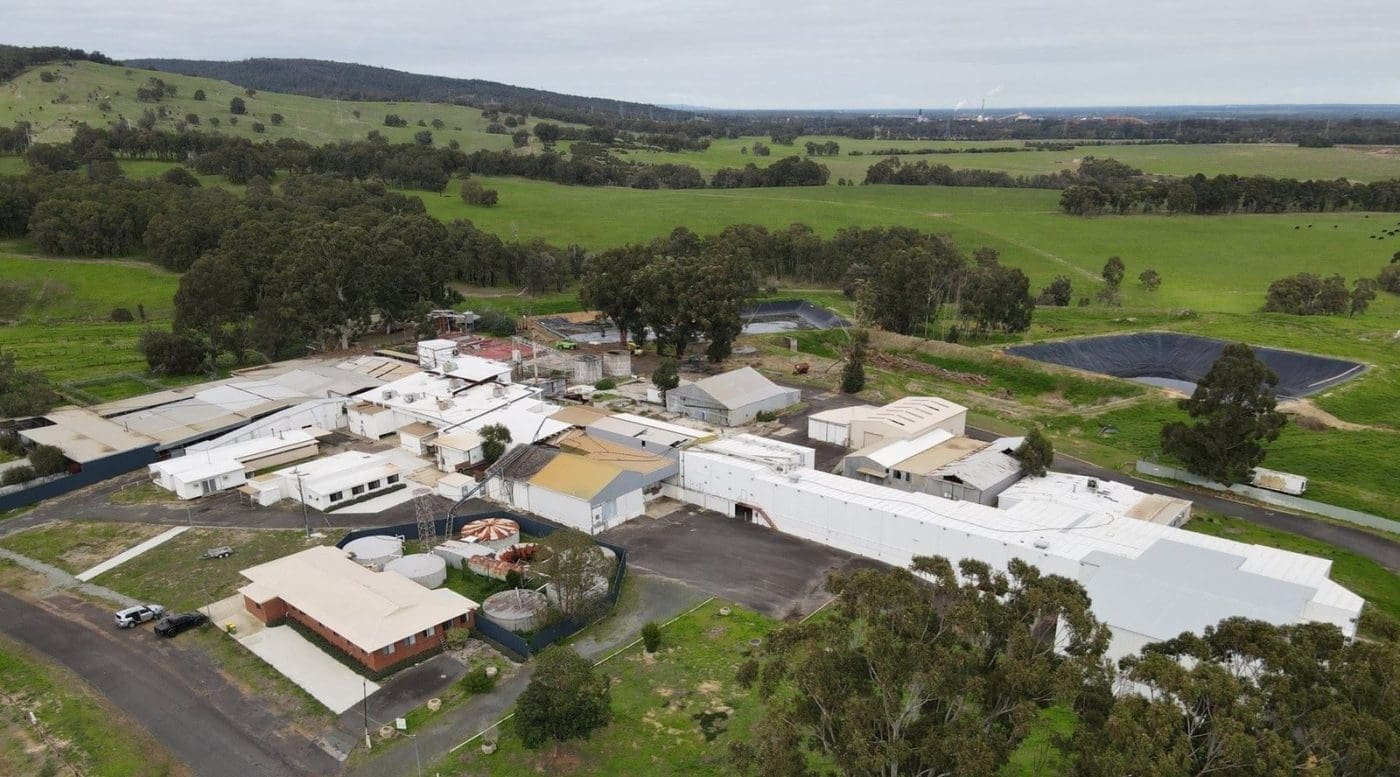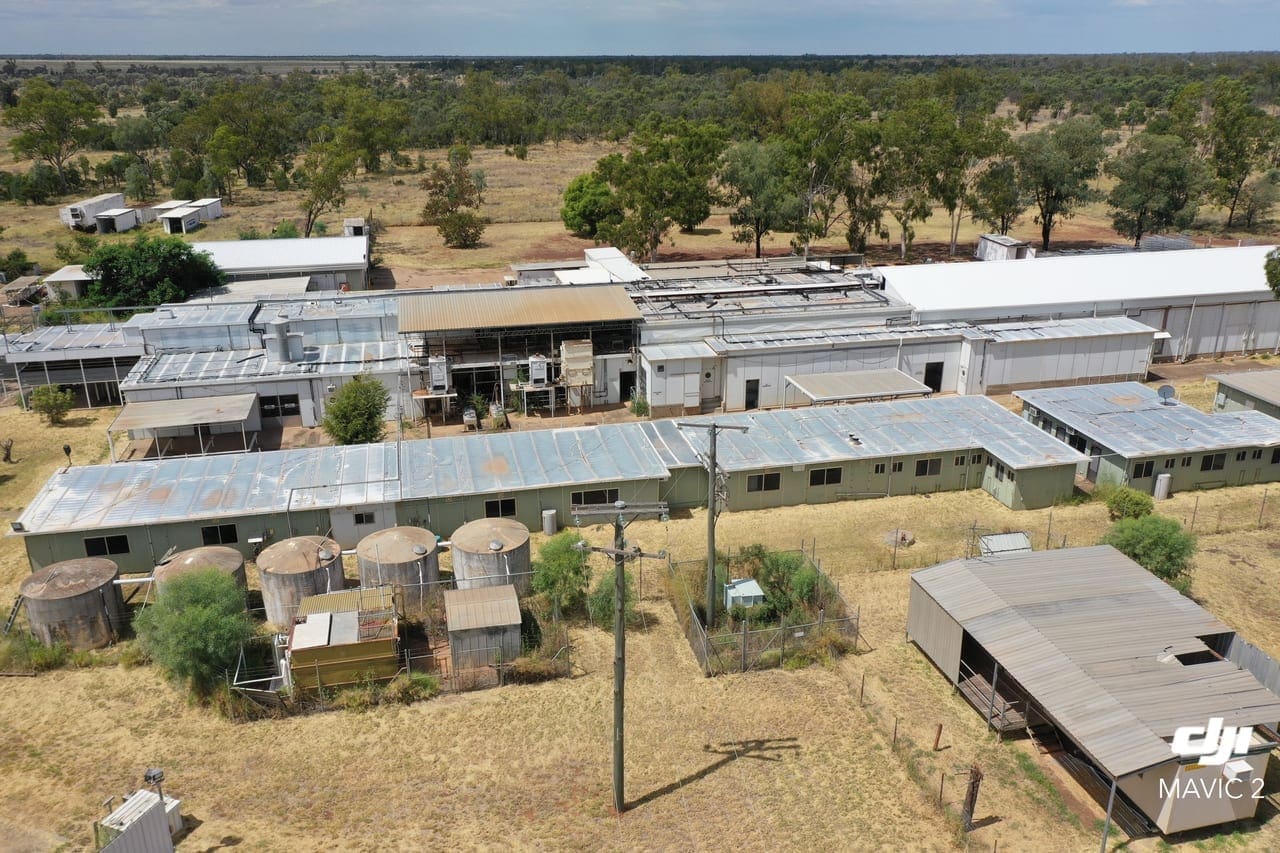
The Geraldton Meat Exports plant, located about 400km north of Perth.
THREE smaller sheep meat and beef processing plants in Western Australia and Queensland have been placed on the market this month – all for sale by expressions of interest.
The fact that red meat processing is again moving back into profitable margins, and global red meat demand remains strong, may not be coincidental.
The export licensed Geraldton Meat Exports smallstock plant and the separate Waroona abattoir (formerly known as Clover Meats) in Western Australia’s south-west were owned since 2018 by Iranian businessman Mahmoud Parastesh’s International Meat Co, trading as Prime Meat. Geraldton was previously owned by Chinese interests, but struggled for some years with supply challenges. The Waroona abattoir was at one earlier point owned by Gina Rinehart’s Hancock Agriculture.
Both are being offered for sale by mortgagees, having been in mothballs for lengthy periods.
The Geraldton Meat Exports plant, located about 400km north of Perth, has capacity to process 2500 sheep and 400 goats daily. It is designed for the processing of skin-on and skin-off goat, sheep and lambs.
The plant was previously AQIS approved Tier 2 export with access to markets included Malaysia, Taiwan, Vietnam, Japan, Korea, Canada, Jamaica, Saudi Arabia, South Africa, Mexico and Indonesia. The site includes good reticulated water supply, power and gas storage, with direct all weather road access 16km east of Geraldton.
The kill floor comprises a sheep floor and goat floor interconnected, and a slaughter floor fitted with two separate chains for sheep and goats.
Nine chillers are fitted with meat rails with a holding capacity of 200 carcases each, allowing sufficient flow for the chill process. One of the chillers consist of a secure and locked Non-Halal cage wide enough and clearly visible. The boning room is linked to the chillers by a trimming rail for final trimming and inspection before the bandsaws.
The freezing section includes three blast freezers fitted with stillages with a holding capacity of 600 cartons each and a high-ceiling freezer, with lined and marked bay, holding capacity of 375 tonnes of product. The storage freezer is fitted with meat rails for 400 frozen carcases.
Waroona capacity 400 beef/day
Also being offered through the mortgagee sale is Prime Meats’ Waroona beef abattoir located 100km south of Perth.
The facility has a capacity of about 500 cattle daily.
When operational, the abattoir was a fit-for-purpose facility including a four-tower plate freezer with a capacity of about 3000 cartons. The cattle line has boning and packing capacity, with freezing capacity of 150 tonnes, six extensive chillers, and a large slaughter floor.
The abattoir has a water supply agreement including new water supply infrastructure with a re-lined fresh water receival pond and waste water ponds.
Last year, the ABC reported that Waroona abattoir had received a $120,000 Federal Government grant in 2020, meant to go towards upgrading the facility’s hot water system.
When the grant was awarded, the expected reopening of the dormant abattoir was tipped to create 350 jobs at full capacity — almost a tenth of the shire’s population. But the slaughterhouse never reopened, and the grant money had to be handed back.
The agent for both sales is Phil Melville from CBRE.

The Waroona beef abattoir south of Perth.
St George’s Wattleglen abattoir
In a separate development, the Wattleglen meatworks near St George in western Queensland has also been placed on the market this month.
Originally built in 1995 for sheep processing, Wattleglen was later bought by large petfood manufacturing company, Wild Game Resources, but has not operated for the past 20 years. The company has existing petfood processing facilities in southern states and has decided to offload the Queensland asset.
The reasonably modern St George facility includes kill floor, boning rooms, refrigeration, chillers, storage, administration and staff rooms. There is a 60 ML water allocation from the Balonne river.
“There is a good supply of goat, lamb and mutton product in close proximity, makes for an excellent opportunity,” agent Brendan Devine from Elders said.
He said there had been surprising early inquiry, with an expressions of interest campaign closing 15 June.

The Wattleglen abattoir near St George in Queensland.
